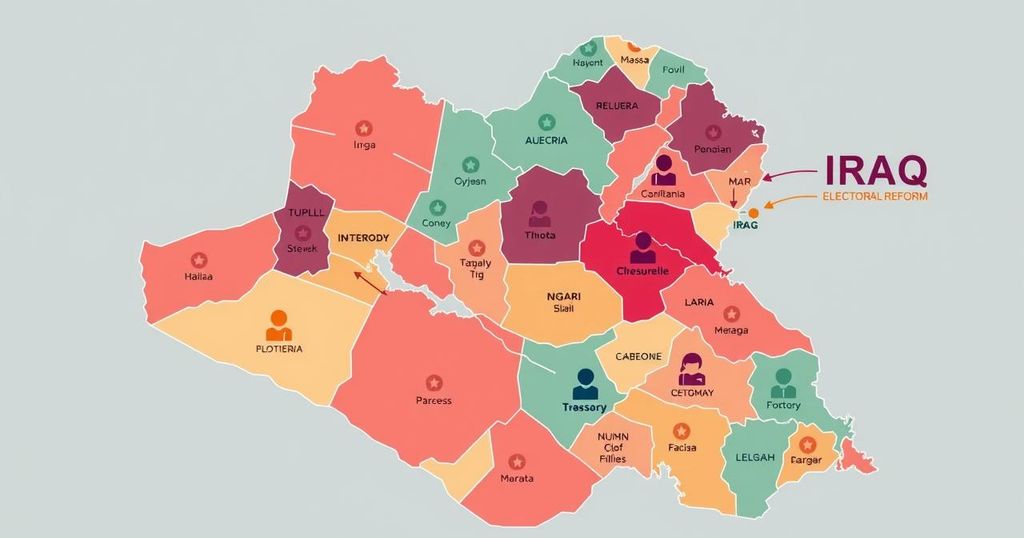Iraq Proposes New Electoral Law Amendment to Ensure Fair Elections
Iraq’s parliamentary legal committee has proposed a new amendment to its electoral laws to improve transparency and fairness ahead of the October elections. Key features include district restructuring, capped candidate nominations, and allocation of seats to independent candidates. The draft aims to prevent political misuse of public office and increase electoral competitiveness.
Iraq has proposed a significant amendment to its electoral laws aimed at tightening voting regulations, as announced by the parliamentary legal committee on Tuesday. This draft, initiated by MP Raed al-Maliki, seeks to enhance transparency, prevent political interference, and ensure fair competition ahead of the parliamentary elections scheduled for October.
The proposal suggests that each province will serve as a single electoral district, with Baghdad, Basra, and Mosul being subdivided into two districts each. To curtail the occurrence of duplicate nominations, the number of candidates on each electoral list will be limited to the number of available seats in their respective districts.
Additionally, the amendment allocates 30% of seats to top-performing independent candidates achieving at least 1.5% of the total votes, while the remaining 70% will be distributed among list-based candidates. Furthermore, adjustments to the Sainte-Laguë formula, a method for proportional seat allocation, would reduce the divisor from 1.7 to 1.5, thereby increasing competitiveness in elections.
To further ensure fairness, the draft mandates that sitting MPs must resign if they seek to run in local elections and imposes similar rules on governors or provincial council members running for parliamentary seats. Moreover, it prohibits the use of welfare initiatives, land grants, or public services in election campaigning.
The proposal follows a recent dialogue between Prime Minister Mohammed Shia al-Sudani and Omar Ahmed Mohammed, head of the Independent High Electoral Commission (IHEC), focusing on preparations for the upcoming elections. IHEC has begun an updated voter registration process, anticipated to last for one month.
However, some lawmakers, such as committee member Mohammed Aunouz, have expressed skepticism regarding the formal steps for amending the election law, suggesting that discussions remain informal. Earlier in March, Aunouz characterized these discussions as mere “political talk.”
The Sainte-Laguë method is utilized to allocate parliamentary seats based on proportional representation, ensuring equitable representation for smaller parties relative to their vote counts. This crucial amendment aims to bolster the chances of independent candidates and emerging political movements in Iraq’s evolving political landscape.
The proposed electoral law amendment in Iraq seeks to enhance transparency, prevent political interference, and ensure fair competition in the upcoming elections. Key features include restructuring electoral districts, limiting candidate nominations, and prioritizing independent candidates. With this initiative, there is potential for increased electoral competitiveness, thereby strengthening the democracy in Iraq as it prepares for the crucial October vote.
Original Source: shafaq.com




Post Comment